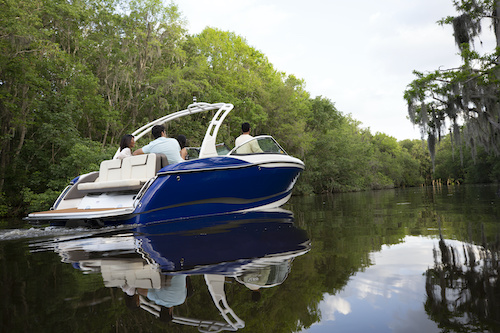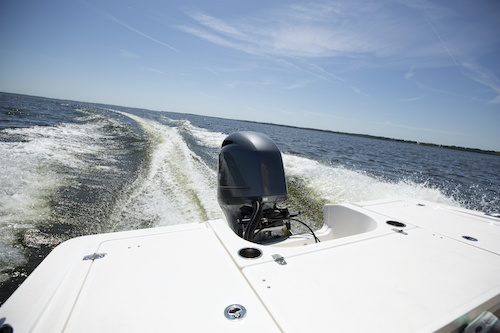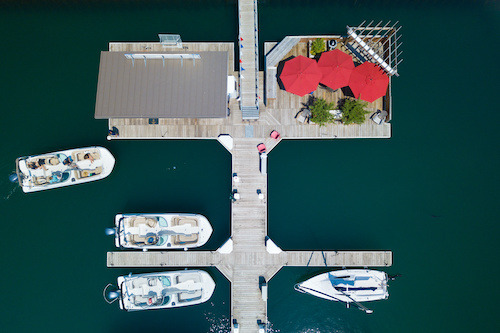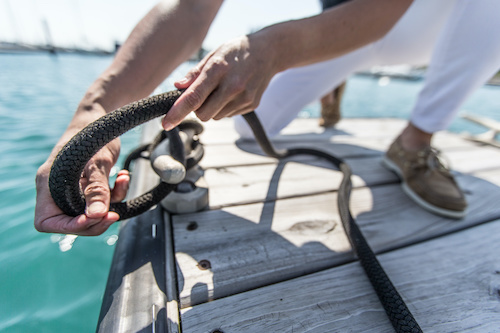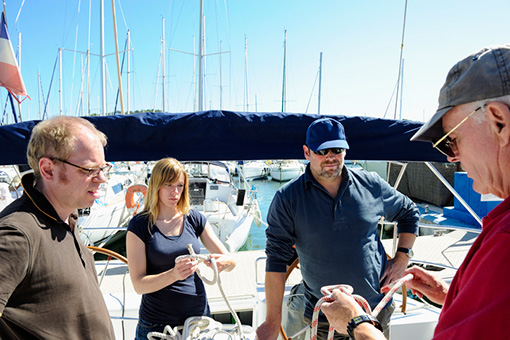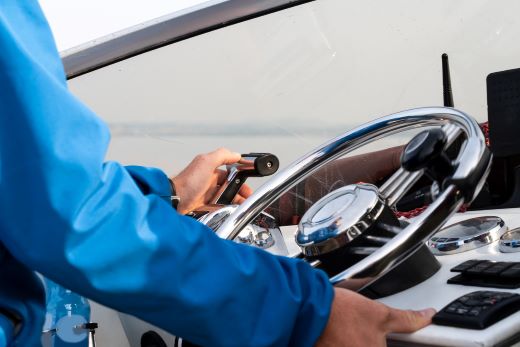Even experienced captains make mistakes and can benefit from a refresher on essential boating practices. This ensures you have the best day on the water, confident and prepared.
The good news is that you can avoid these 12 common boating blunders with some extra planning and knowledge. Get ready for a smooth sailing adventure!
12 Common Boating Fails to Avoid
- Failing to check the marine weather forecast
- Running aground
- Forgetting to keep up with regular maintenance
- Hitting the dock
- Running out of gas
- Forgetting to put in the drain plug
- Overloading the boat
- Getting lost
- Putting out insufficient anchor line
- Running the engine while dry
- Improperly mooring the boat
- Trailering with the engine down and/or the top up
Now, let's talk about how to avoid each of these mistakes.
Weather Safety Tips for Boaters
1. Failing to Check the Marine Weather Forecast
Tuning into marine weather before each trip is a must unless you want to be surprised by gusty winds, rough seas, and sudden storms. And remember, this means marine weather, not regular land-based forecasts, which don't include sea conditions. To ensure you never encounter this error, check out marine weather apps before leaving the dock.
First-Time Boat Owners: How to Get Started
2. Running Aground
Running aground is a lot more common than you might think and can have varying degrees of severity depending on where you do your boating. On a soft mud or sand bottom, it's usually no big deal, but in a rocky harbor, hitting the bottom can do some serious damage.
The solution? Always be aware of where you are and the local underwater hazards. And when in doubt, reduce your boat's speeds.
3. Forgetting to Keep Up with Regular Maintenance
This mistake can have serious consequences, especially for your boat's propulsion systems. Be sure to peruse our Boat Maintenance resources, create a maintenance schedule, and stick to it.
The Ultimate Boat Maintenance Guide
4. Hitting the Dock
Docking mastery is critical! Even with perfect planning, unexpected issues like power loss can arise, risking your boat hitting the dock.
Knowing how to dock your boat skillfully prepares you to handle any situation and ensures a smooth arrival.
5. Running Out of Gas
This is one of the most common mistakes that boaters make. Remember that factors like sea conditions and load can change fuel consumption and your boat's range.
In addition, fuel gauge readings can change as fuel sloshes in the tank, and the fuel gauges on boats are often less reliable than those found in automobiles.
As a result, boaters should stick with the following formula:
- Use one-third of fuel capacity going out.
- Use one-third coming back.
- Save one-third in reserve.
6. Forgetting to Put in the Drain Plug
This is another mistake that could be more familiar to many boaters, especially trailer-boaters, who commonly remove the plug between uses. Check out our article on How to Launch a Boat, which includes tips to help you avoid other common launching mistakes.
7. Overloading the Boat
This miscalculation can be downright dangerous, so always keep track of the weight of people and gear when loading the boat.
If you haven't memorized your boat's maximum capacity requirements, check the capacity plate to ensure you're in the safe zone.
Watch Our Boat Capacity Requirements Video
8. Getting Lost
Although this happens less and less on the water thanks to modern marine electronics and navigation instruments, it still happens.
Electrical systems can have issues, so you should always know your location and how to get home, regardless of what electronics you have aboard.
If your boat doesn't have navigation gear, consider adding a marine navigation app to your phone, which can be used as a mini-chart plotter.
9. Putting Out Insufficient Anchor Line
Anchoring a boat seems simple: drop down the anchor, cleat off the line, and the boat will stay put, right? Not necessarily.
Even in calm seas, the anchor may pull free if you don't let out enough line to match three times the depth.
In a breeze, a "scope" (length of anchor line) of 5:1 or 7:1, compared to water depth, is considered minimal. When it's rough out, 10:1 may be necessary.
10. Running the Engine Dry
Most marine engines (excluding air-cooled and electric engines) require water for cooling purposes. Water cools the engine and lubricates the water pump impeller commonly found in most marine propulsion systems.
Run a boat motor while it's on dry land without a sufficient water supply, and it will overheat, the impeller will be damaged, or both.
11. Improperly Mooring the Boat
The most common issue here is failing to learn a proper cleat hitch. Then, one might be left standing on the dock, watching the boat float away. Of course, tying up correctly in a slip is also important to ensure the boat doesn't bang the dock or pilings.
Read our How to Tie Up a Boat guide, to make sure you have it down pat.
12. Trailering with the Engine Down and/or Top Up
Prepping a boat for trailering is an important task, and two things that people sometimes make mistakes with include the engine tilt and Bimini tops. In both cases, they shouldn't be left in the up position.
Engines tilted all the way up can bounce and sway, putting much pressure on the boat's transom. If the trailer allows the engine to be tilted down, great. If not, a "transom saver" bracket that supports and secures the outboard is a must.
And when it comes to Bimini tops, remember that they aren't designed to withstand 60 MPH winds. Rather than being left up, a convertible top should always be taken down and secured for highway speeds.
Avoid These Common Boating Mistakes for a Stress-Free Boating Adventure!
Unexpected situations arise on the water, and reviewing these 12 mistakes can be the difference between a minor blip and a major mishap. By keeping these reminders fresh, you'll be well-equipped to navigate any challenge and ensure a safe day on the water.
